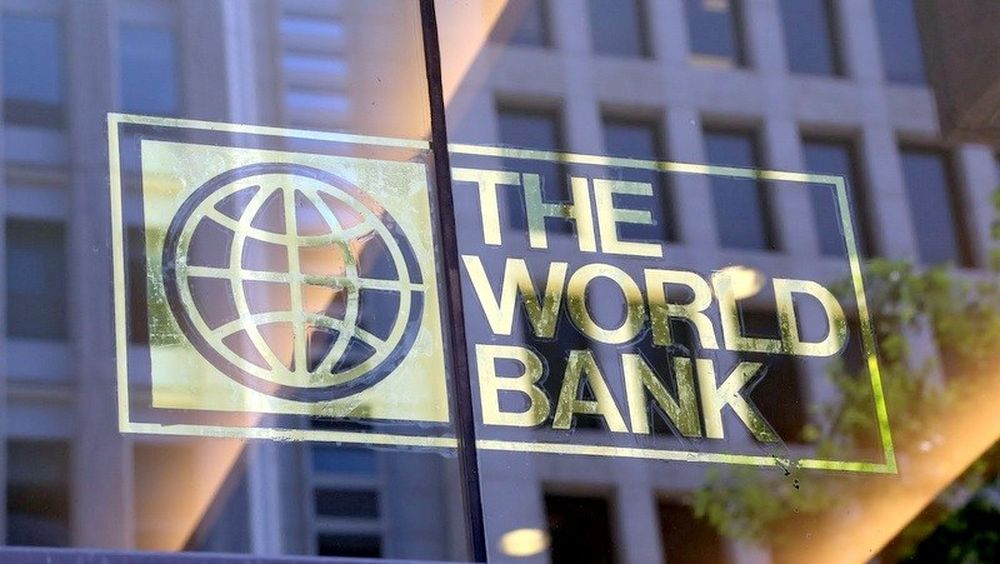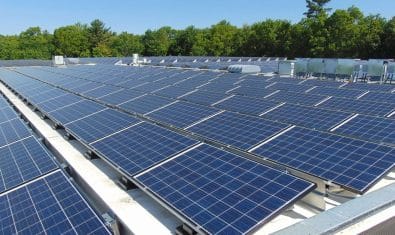The widening macroeconomic imbalances could increase Pakistan ’s vulnerability to external and domestic shocks, stated the World Bank (WB) in its report.
The WB’s bi-annual report “Pakistan Development Update”, states that with declining reserves and elevated debt ratios, Pakistan ’s ability to withstand external shocks will be compromised and the risks will remain predominantly on the downside. Policy adjustments will be necessary to reverse these imbalances and restore and maintain macroeconomic stability.
The country’s economic growth accelerated to 5.3 percent in financial year 2017 – the highest level in a decade – and could reach 5.8 percent in financial year 2019. However, as growth picked up, internal and external imbalances re-emerged. The fiscal deficit expanded to the highest level in last three years as revenue mobilization weakened and spending increased. On the external front, the current account deficit grew, reaching its highest level in a decade.
Fiscal Trade Deficit
The report further states that the pressure on the current account is expected to continue as the trade deficit will persist during fiscal year 2018 and fiscal year 2019. This situation could potentially become unsustainable in the absence of timely corrective policy measures.
Fiscal slippages are expected to continue through the election cycle, which will further widen the fiscal deficit during fiscal year 2018, compared to the 5.8 percent fiscal deficit in fiscal year 2017. This increase in the fiscal deficit will be driven primarily by a slower increase in government tax revenues (both federal and provincial) and a sharper increase in expenditures.
An adjustment in the fiscal position in fiscal year 2019 post-election will help curtail the fiscal deficit. Inflation, after remaining moderate during fiscal year 2017, is expected to rise steadily in fiscal year 2018 and fiscal year 2019. This increase will be driven by higher domestic demand and a slight increase in international oil prices.
Liabilities
The public debt path can be sensitive to the materialization of contingent liabilities. These liabilities can originate from loss-making PSEs and take the form of outstanding power sector circular debt. Moreover, a one-time 30 percent real depreciation of the Pakistani rupee against the US dollar may lead to an increase of almost 10 percentage points in the public debt ratio over the projected horizon.
Pressures on the balance of payments are projected to continue over the next few years. The trade deficit is expected to remain large even after exports recover, given strong import growth linked to China Pakistan Economic Corridor (CPEC) investments. Remittance growth will remain subdued, given the gradual economic recovery projected in the GCC countries.
Read More: Overseas Pakistanis Remit US$ 6.4 Billion During The First Four Months of FY 2018
Exchange Rate
WB report maintained that a flexible exchange rate should help the economy adjust to these pressures. There is a strong and significant relationship between the Real Effective Exchange Rate (REER) and exports in the medium to long term, which suggests that increased Pakistani rupee flexibility would help narrow the trade deficit. Policy makers are usually concerned with the short-term adjustment costs of a weaker currency.
Despite a substantial decline in international reserves, the nominal exchange rate remained largely steady with a mild depreciation of 0.2 percent against the US dollar during fiscal year 2017. A stable nominal exchange rate with the US dollar and low inflation resulted in the REER appreciating by 3.4 percent during fiscal year 2017. This appreciation contributed to the widening external financing gap and the decline in international reserves. Cumulatively, the REER has appreciated by 13 percent over the last three fiscal years.
Inflation
The update states that analysis by the WB suggests a moderate increase in inflation and a manageable increase in debt financing costs as a result of Pakistani rupee depreciation, in line with similar analyses conducted by the central bank and other institutions.
Higher inflation could affect consumption negatively, but the overall impact of a moderate depreciation on growth is likely to be positive.
Increasing commodity prices, weaker global growth, or adverse geopolitical developments in the region could all test the economy’s resilience.
Policy Reforms
An appropriate policy response that corrects imbalances and increases buffers able to absorb future shocks would reduce risks and support the positive growth outlook.
Such a policy response would entail maintaining a competitive REER – supporting exports and import-competing industries – as well as efforts to improve revenue collection and improved coordination between the federal and provincial governments to reduce public spending.
Reforms to improve the competitiveness of the exports sector and the economy more generally will contribute to improved external balances and help attract more FDI to meet the country’s external financing needs. These medium-term reforms are crucial to address stubborn structural imbalances and need to be implemented in parallel with the shorter-term measures discussed above to restore and maintain macroeconomic stability.
Tax Revenues
In recent years, Pakistan’s tax revenues have grown significantly (from 9.5 percent of GDP in fiscal year 2011 to 12.4 percent in fiscal year 2016) owing to federal and provincial efforts. FBR has removed discriminatory exemptions provided through SROs, resulting in a significant reduction in tax expenditures. The provinces’ contribution to total tax revenue reached 0.9 percent of GDP.
Nonetheless, to sustain these gains, the next level of reforms needs to be implemented. The objectives of such reforms should include the broadening of the tax base, increased tax compliance, and reduced administrative and taxpayer compliance costs.
To achieve these, a comprehensive review of tax policy is required, assessing it against the key principles of neutrality, fairness, and transparency. In addition, a fully automated and able tax administration is imperative to take advantage of modern IT infrastructure that uses the available data to reduce the chances of tax evasion.
Finally, post-18th Constitutional amendment, the lack of coordination among different tax authorities has increased the compliance cost of taxpayers. There is a need to establish a coordination mechanism to resolve taxation issues between the federal government and the provinces, and among the provinces.
Strategic Trade Policy
The government’s upcoming Strategic Trade Policy Framework (2018–23) will define its program to reverse the current decline in exports. This should include reforms in tariff rationalization, diversification, and integration with global value chains.
These reforms need to be complemented by suitable trade facilitation measures, including the development and implementation of a national single window, among other areas, together with process streamlining to help Pakistan reduce trade costs and improve connectivity between domestic and foreign markets.
Furthermore, investment policy reforms and the development of a focused investment promotion strategy that restructures incentives, improves investor relationship management and inter-agency coordination, and establishes efficient one-stop services for investors, could unlock the significant potential of FDI in Pakistan.
Services Sector
The report maintained that the services sector is expected to grow by 5.8 percent in fiscal year 2018, compared to 6.0 percent in the previous fiscal year due to healthy growth in wholesale and retail trade, and transport, storage, and communications.
Growth in the industry is expected to increase to 7.0 percent in 2018, compared to 5.0 percent in 2017, benefiting from an improved electricity supply and continued construction activity under CPEC during fiscal year 2018. The agricultural sector’s performance is expected to remain robust, with major contributions coming from the crops sector, particularly cotton and rice.
New Fiscal Responsibility
Fiscal year 2018 is the first year of implementation for the amended Fiscal Responsibility and Debt Limitation (FRDL) Act.
Under one of the amendments, the government has to ensure that, within a period of two fiscal years beginning from 2017, total public debt is reduced to 60 percent of GDP. The legislation further stipulates that, within a period of five fiscal years beginning from fiscal year 2019, total public debt shall be reduced by 0.5 percent every year; from fiscal year 2024 and going up to 2033, a reduction of 0.75 percent is stipulated every year to reduce the total public debt to 50 percent of GDP.
Thereafter, it will be maintained at 50 percent or less of GDP. The public debt ratio stood at 68.1 percent as of end-June 2017. Sustainability analysis shows a declining trajectory of public debt to GDP going forward, however, compliance with the FRDL Act limits is likely to be challenging unless an ambitious fiscal consolidation agenda is put in place, starting fiscal year 2018.
New Economic Reforms
Pakistan needs accelerated economic reforms to speed up growth, create more jobs and bring more stability by addressing growing fiscal and current account deficits, the report maintained .
“Pakistan has made good progress in making its economy more stable in recent years,” said Illango Patchamuthu, World Bank Country Director for Pakistan in a statement. “In order to sustain this hard-won achievement, Pakistan will need to continue with economic reforms and pursue policies that make the country compete better in global markets”, he added.
With 2 million people joining the labor force every year over the next 20 years, a key challenge for Pakistan is to create jobs”, said Enrique Blanco Armas, World Bank Lead Country Economist for Pakistan . “ This will require not only an acceleration in economic growth but also a medium-term agenda to invest massively in human capital to improve labor productivity and overall competitiveness.






















World Bank Saaf Saaf Bolo : Pakistan Needs Mian Sahab :p
Agreeeed
:D
Shabaaash.
Mere nojawaano mujy Tum pe hai Yaqeen…Apke Dilon ka Wazir e Azam…
ye bhi to yaad rkho k ye sara loan mian sahab ny hi lya tha us bndy aur poray khandn ko sarak py khara kr k goli maro gy na to logon k ghron mein mithayain batein gi aur sb sy ziada lahore mein is baat ki guarantee mein dy skta hn 20 saal sy jo chaks ny apny maholy ko saaf pani nhi dy skta woh mulk bacahy ga what a joke
Kisi Ne Such Kaha hai (Jo Khud Chal Nahi Pate Is Umar Main) Un Se Mulk Chalane Ki Kiya Umeed Ki Ja Sakti hai :
Waisy Methai Main Bhi Banto ga:P